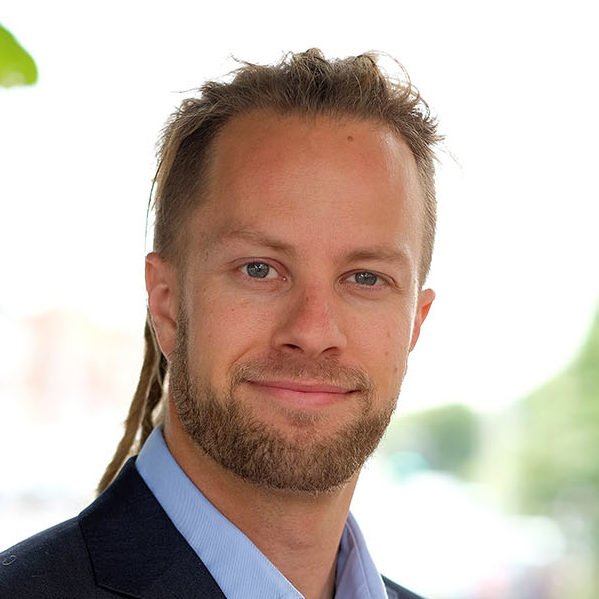In Danny Wallace’s memoir, ‘Yes Man’, he recounts how he chose to say ‘yes’ to just about anything that was offered to him for an entire year. The idea was that, if you take that leap of faith and make a commitment to something you’d normally reject, you just might end up happier for it.
There’s someone I know, an old friend of mine, that loves to say ‘maybe’ to everything. It doesn’t matter what kind of interesting outing or fun activity I invite them to, they always seem to have trouble just giving a straight ‘yes’ or ‘no’.
Not making a commitment can be seen as the easier option. You don’t have to deal with the unknown, you can keep safe and comfortable where you are, and there’s no danger of ending up in an awkward situation. For people like my friend, when they think of commitment, it seems to me that they can only foresee a negative outcome.
I know it’s unreasonable to expect to control everything around us, but I feel that the act of making a commitment to something or someone—no matter how big or small—can help us feel like we’re in charge of an otherwise chaotic life.
To me, commitment means to take a chance on something for the better. Think of it like this: you’re standing outside in the rain; your umbrella is keeping you relatively dry for now, but the weather’s getting worse and you’re sure it won’t protect you for much longer. Across from you, there’s a building—maybe something with a lobby—that would be a perfect place to wait out the rain; but you’re not sure you’d be welcome if you just walked in. So what would you do? Would you just stand there in the rain until you were soaked, or would you go seek shelter and see what happens?
What do you have to lose? Take a leap!
LifeLine has a twenty-two year track record of delivering in the community. As a voluntary sector organisation, it can be difficult to fulfil our commitment when funding is so fleeting. This has required us to flex and adapt to changes whilst remaining focussed on our long-term destination. At times, this has meant rapid growth, and at other times, scaling back. Despite all the ups and downs, we ensure the people we serve get the essential support they need; our commitment to them made us seek new initiatives and link them to available funding.
At LifeLine, we believe that commitment is helping our community, whether through action or investment. Commitment is getting to know the people we serve and responding to changes that they’re going through. Commitment is honest communication and building trust. Commitment is letting people know that we’re genuinely interested in what’s happening in their lives and letting them know that we care. Commitment is supporting people through tough decisions.
Commitment is helping to make the lives of the people in the community we serve as excellent and purposeful as they can be. Commitment is for the long term. Commitment enhances our bonds with the community.
We asked a variety of people for their definition of commitment and they kindly provided us with the following. We hope you enjoy the quotes and thanks to everyone for their contributions.


David Robinson
Founder, the Relationships Project, Community Links, Shift
I often wonder if there is a list of banned words somewhere in the cabinet office or maybe in the Treasury. If not there, then at least in the hive mind of policy makers and politicians. Wherever it is, “commitment” is very likely on the list, just before “love” and after “kindness”. These are the vital signs of the kind of strong relationships that make everything work better, our organisations, our services, our communities. In our work, as in our personal lives, we need a grownup conversation that recognises the importance, and the challenges, of meaningful commitment.


Anoushka Dunić
Mental health and wellbeing trainer; workshop facilitator
Commitment is saying you will do something and doing what you say. It’s more than a promise, it’s promise + action = commitment.


Hugh Osgood
Pastor; Moderator, Free Churches Group
I’ve always seen commitment as two-way traffic. With tasks, I know we only get out of something according to how much we put into it. I believe this is even more true with relationships, whether they are working relationships or social ones. Taking the initiative with commitment makes sense and I know it works.


Jo Tonks
Community Navigator, West Midlands Violence Reduction Unit
I think reliability would feature, that workers will keep their word and turn up when they say, to demonstrate you are genuinely on their side particularly in meetings young people are included in. I think dedication too whilst always bringing some hope.


Mathew Shaer
Chief Superintendent, West Midlands Police
Commitment helps define and focus me. It is central to my being, as it relates to life priorities of faith, family and work. My commitments to each are intensely personal, often inter-connected, heavily influenced by upbringing, experiences and learning. I suggest commitment cannot be mandated, implemented or delivered via job description. There are downsides. Criticism, especially when unfair or disproportionate, that questions commitment can hurt deeply. Relationships can suffer because sometimes duty comes before gatherings and events. Yet, it remains my anchor, my companion.


James Gregory
Area Director, StreetGames
To me, commitment means making a conscious but internal pledge to be focused on achieving a goal; commitment to other agendas and not just hobbies, or your favourite Netflix series is to me, part of what gives my life meaning.
I know that being committed to causes in my life—giving value to other people’s lives and circumstances and not just my own—brings me satisfaction and internal benefit too.
For example, coaching the kids football team so they fall in love with the game and being part of the parish council to improve community facilities are two examples of how being committed brings value to my life and hopefully the lives of others. “You get out what you put in” is a truism that I’m trying to pass on to my 6 year old at the moment when discussing the merits of spending time sorting his toys and tidying his room!
Being committed also brings with it a sense of belonging and attachment that also brings life-enhancing benefits. I feel fortunate that I was supported as a child to show commitment to my sports clubs which meant I loved playing sport and being part of a team—two things that have built my identity and shaped my life.
Therefore, a big commitment in my life will always be to fight and reduce inequality and unfairness – which has led me to work in this Sport 4 Good space for over 20 years, and for StreetGames over the last 10 years—as both StreetGames and I have been, and always will be, committed to supporting young people who live in underserved communities to access life-enhancing Doorstep Sport.


Fateha Begum
Employment Coach, EY Foundation
As times progress, for me commitment to young people means to awaken the soul, to action change, and be accountable. Times will be tough, yet it’s about breaking every glass ceiling and ensuring together there is a safe space to live and succeed.


Bernice Jeffrey
Founder, Stage Ready Performing Arts
I would say commitment to me means dedicating time and effort to whatever it is that you are committing to and keeping that same dedication towards that until the goal is reached.


Anistasia James
Commumity Development Worker, LifeLine Projects
Commitment to me means showing up, physically and emotionally—but with limits.
Mentors for young people usually worry that they should over-commit. They give 110% and drop everything in a flash for a young person. Often, this will mean young people’s expectations are high and can be left disappointed if a mentor can’t be there. Therefore, a mentor for a young person must be committed but also maintain professional boundaries.
Being committed is being invested in the wellbeing of a young person. In as much, you are committed to ensuring their support network is strong and so they do not rely solely on you.



